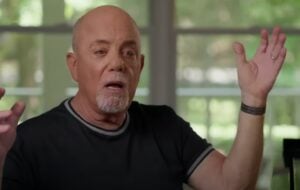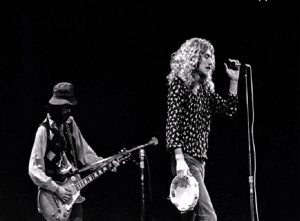Shocking Documents Surfaces At Eagles Stolen Lyric Trial

via Eddie steady 19 / Youtube
Recently unearthed documents from an ongoing trial shed new light on a notorious incident from 1980 involving Don Henley, where he was arrested following a teenager’s overdose at his residence. Henley contends that the overdose occurred during a farewell gathering attended by crew members as the band embarked on an extended hiatus post-’70s.
Henley’s Defense and Conflicting Narratives
Although charged with providing cocaine to a minor, he asserts taking the blame to shield others. Additionally, he adamantly denies any sexual involvement with the teenager.
“There were roadies and guys in my house – we were having a farewell to the Eagles,” during a 1991 interview with GQ magazine, Henley recounted the events. “I got all of them out of the house; I took complete blame for everything. I was stupid; I could have flushed everything down the toilet. I didn’t want this girl dying in my house. I wanted to get her medical attention. I did what I thought was best, and I paid the price.”
In a surprising twist, a letter authored by Henley to a Santa Monica probation officer, recently submitted as evidence in an unrelated ongoing trial, presents a starkly contrasting narrative.
Contrary to previous accounts of a party setting, Henley’s letter depicts a solitary and despondent scenario. He reveals contacting an escort service while in a state of depression and solitude. Subsequently, a young woman arrived at his doorstep, and they engaged in cocaine use while acquainting themselves.
“She told me that she was only a temporary call-girl until she paid off a $2,000 cocaine debt in San Diego,” In his statement, Henley reveals that the woman he was with later confessed to consuming additional cocaine “every time I got up to get her a drink or went to the toilet.”
View this post on Instagram
Henley’s Account and Legal Consequences
According to the letter, Henley acknowledges attempting to initiate sexual activity with the teenager before she expressed feeling unwell. He recounts being in the bathroom fetching aspirin for her when she suddenly experienced a seizure.
Henley recounts calling for assistance, but by the time paramedics arrived, the teenager seemed to have improved. He states that they departed after he assured them he would ensure her safe return home. Subsequently, he contacted a friend to arrange transportation for her. However, just as the friend arrived, officers from the Los Angeles Police Department’s Sexually Exploited Child Unit appeared on the morning of November 24, 1980.
According to news reports, investigators seized 22 grams of cocaine, five ounces of marijuana, as well as Quaaludes and other substances. The 16-year-old escort, reportedly found unclothed, faced charges of prostitution, while her 15-year-old companion was arrested for drug intoxication.
At the time, in his early 30s, Henley opted to plead no contest to a misdemeanor charge of contributing to the delinquency of a minor. He was subsequently sentenced to two years of probation and ordered to pay a $2,500 fine.
View this post on Instagram
Henley’s Legacy and Legal Challenges
In that era, there seemed to be minimal concern about how the incident would impact Henley’s career. “It’s no big deal,” a record-label executive nonchalantly remarked to the Los Angeles Times. “Kids don’t exactly put rock stars on a pedestal these days.” And true to expectations, that’s exactly how things played out.
Henley’s portrayal of himself as a sympathetic figure caught in an unfortunate situation became a part of Eagles folklore. He even channeled his frustration with media coverage into his debut solo radio hit. Eventually, the entire episode slipped into the past.
Yet, a recent trial concerning allegedly stolen lyric sheets from the Hotel California era has reignited interest in the past. Attorneys for Edward Kosinski, one of the defendants, sought to introduce Henley’s letter into evidence and probe him about his public statements regarding the incident.
Manhattan Assistant District Attorney Aaron Ginandes argued for its exclusion, citing the dated nature and prejudicial impact of Henley’s 1980 misdemeanor conviction.
“Mr. Henley has a 1980 misdemeanor conviction and given the length of time, how long ago that was, and the fact that that misdemeanor conviction has – the nature of it is quite prejudicial and it has absolutely no probative value.”
However, Judge Curtis Farber ruled otherwise, allowing the letter to be admitted as evidence. This decision will enable the defense to challenge Henley’s credibility during the trial, with Henley expected to testify during breaks in the Eagles’ tour schedule.











